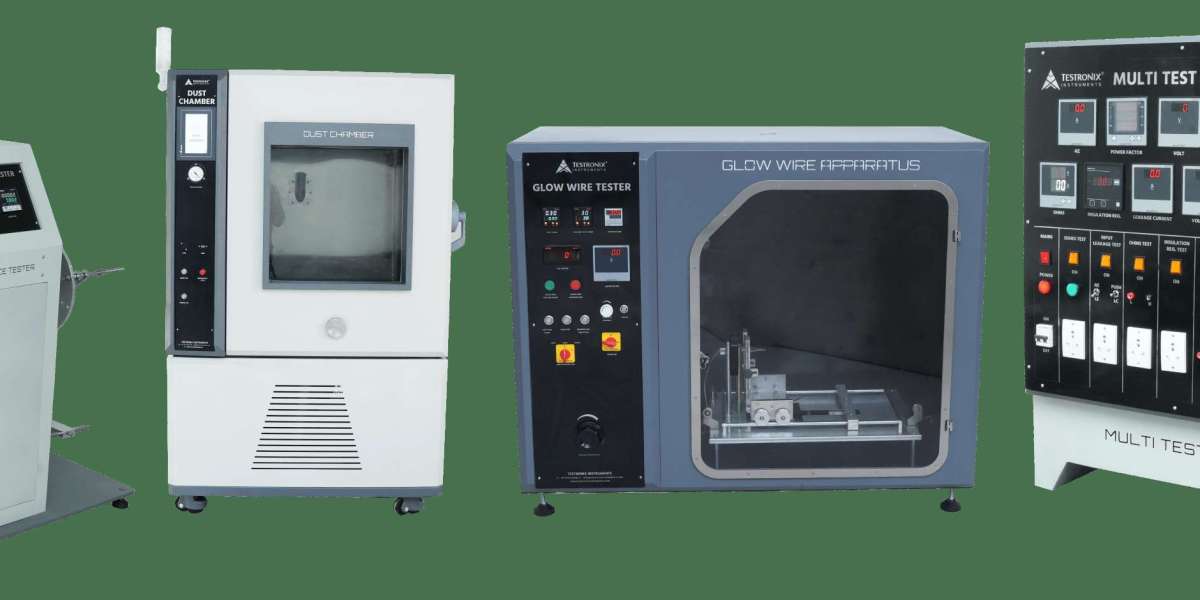Selecting the right home appliance testing machine for your laboratory is a critical decision for manufacturers, quality assurance teams, and research facilities worldwide. With safety regulations becoming increasingly stringent, testing appliances according to internationally recognized standards such as IS 302 is no longer optional but a necessity. Home appliance testing instruments as per IS 302 help ensure that products meet safety and performance criteria, reduce risks, and maintain consumer confidence. Choosing the right equipment requires careful evaluation of functionality, accuracy, compliance, and adaptability to different appliance types.
Understand the Importance of Home Appliance Testing
Home appliance testing machines play a crucial role in assessing the performance, durability, and safety of appliances before they reach consumers. In a highly competitive manufacturing industry, reliable testing instruments not only reduce the risk of recalls but also ensure compliance with regulatory standards. Selecting the right machine is about more than just meeting compliance requirements; it is about ensuring consistent quality, operational efficiency, and long-term reliability of your products. In this article, we will explore key factors, features, and considerations for choosing the ideal home appliance testing instruments as per IS 302 standards.
Evaluate Appliance Types and Testing Requirements
Different home appliances have varying testing needs based on their functionality, electrical design, and intended usage. Some machines are designed to test electrical safety, while others focus on mechanical durability, energy consumption, or operational performance. Before purchasing a testing machine, laboratories should carefully assess the types of appliances they will test most frequently. Understanding the scope of required tests helps in selecting equipment capable of performing multiple test protocols efficiently.
Check Compliance with IS 302 and International Standards
One of the most critical factors in choosing a home appliance testing machine is compliance with IS 302 standards, which define safety and testing requirements for electrical appliances. It is also beneficial to consider machines that meet additional international standards such as IEC, UL, or CE certifications. Compliance ensures that your test results are recognized globally, which is particularly important if your products are destined for international markets. Machines compliant with these standards reduce the risk of nonconformity and potential legal challenges.
Consider Accuracy and Measurement Capabilities
Precision is paramount in appliance testing. High-quality testing instruments offer accurate measurement of electrical parameters such as voltage, current, insulation resistance, and torque. Machines with advanced digital displays, automated measurement recording, and data export capabilities allow laboratories to maintain accurate records and generate reports efficiently. Laboratories should evaluate the calibration capabilities, repeatability, and sensitivity of the instruments to ensure reliable results across multiple test cycles.
Assess Machine Versatility and Adaptability
A versatile home appliance testing machine allows laboratories to perform a range of tests on various types of appliances, from small kitchen devices to large household equipment. Machines with adjustable test settings, multiple test modes, and modular components provide flexibility and extend the lifespan of your investment. Adaptable testing machines are especially beneficial for facilities handling multiple appliance categories or working on product development and prototyping stages.
Evaluate Ease of Operation and User Interface
While technical specifications are important, the usability of the testing machine should not be overlooked. Machines with user-friendly interfaces, clear displays, and simple procedures reduce operator error and training time. Some advanced systems also offer software integration for automated testing sequences and result logging, improving overall efficiency. A user-friendly machine improves productivity and ensures consistent testing results.
Consider Maintenance and Support
Long-term reliability depends on proper maintenance and the availability of technical support. Choose home appliance testing instruments that offer easy maintenance, readily available spare parts, and reliable customer service. Vendors providing comprehensive training and documentation ensure your team can operate the machine effectively while minimizing downtime. Regular calibration services and preventive maintenance programs are also essential to maintain testing accuracy over time.
Plan for Data Management and Reporting
Modern laboratories require comprehensive data management solutions for regulatory compliance and quality documentation. Machines capable of logging, exporting, and analyzing test results streamline reporting processes and provide insights into appliance performance trends. Efficient data handling not only supports internal quality control but also strengthens compliance reporting for audits or certifications.
Consider Future Expansion and Technological Advancements
Investing in home appliance testing machines is a long-term decision. Consider equipment that can adapt to future technological changes, new appliance designs, or updated regulatory standards. Machines offering software updates, modular expansions, or remote monitoring capabilities provide additional value by keeping your laboratory at the forefront of testing technology.
Conclusion
Choosing the right home appliance testing machine is a strategic decision that impacts product quality, safety, and compliance. By evaluating appliance types, ensuring adherence to international standards, and considering accuracy, versatility, usability, maintenance, and data management, laboratories can make informed decisions that improve efficiency and reliability. Investing in high-quality home appliance testing instruments as per IS 302 ensures safer products, regulatory compliance, and long-term confidence for manufacturers and consumers worldwide.







